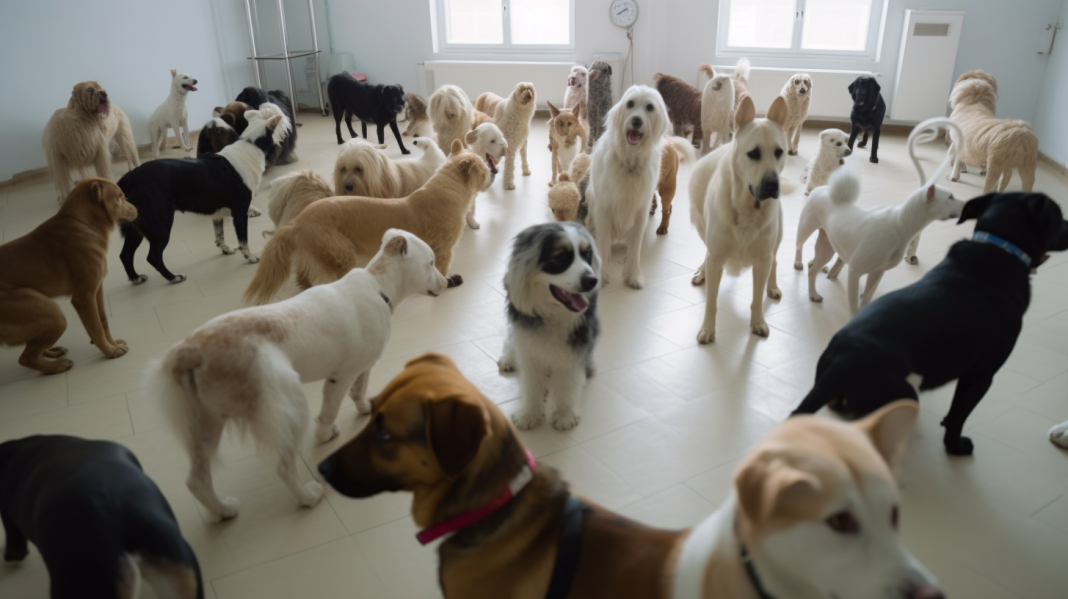A dog pound may not be the most pleasant topic to discuss, but understanding its origins, meaning, and the role it plays in animal welfare is essential for anyone who cares about the well-being of our furry friends. In this article, we will delve into the history and purpose of dog pounds, the concept of home-to-home pet adoption, the importance of animal rescue and care organizations, and the differences between dog pounds and modern animal shelters.
Dog Pound Meaning
The term dog pound refers to a facility where stray, lost, abandoned, or surrendered animals, mainly dogs, are temporarily housed. These facilities are often run by local governments or animal control agencies. They provide a safe place for dogs until they can be reunited with their owners or placed in new homes. In addition to shelter, pounds also ensure that animals receive necessary medical care and vaccinations.
History of the Dog Pound
Dog pounds have a long history, dating back to ancient civilizations like Egypt and Rome, where they were established to control stray dog populations. The modern concept of a dog pound can be traced back to the 19th century in the United States when cities started creating facilities to house stray and abandoned animals. It is difficult to attribute the invention of the dog pound to a single individual, as it evolved over time as a response to the growing problem of stray animals in urban areas.
Why Do Animals Go to the Pound?
There are several reasons animals may end up in a pound. They may be picked up as strays by animal control officers, surrendered by their owners due to financial or personal constraints, or abandoned by owners who can no longer care for them. In some cases, animals may be seized by authorities due to abuse or neglect. Pounds serve as temporary housing for these animals until they can be reunited with their owners or adopted into new homes.
Animal Care and Adoption Center
Animal care and adoption centers play a crucial role in rescuing animals from pounds, providing them with medical care, socialization, and training to prepare them for adoption. These centers work closely with pounds to identify animals in need of assistance, often transferring them to their facilities to improve their chances of finding a loving home. Many adoption centers also work with foster families, who provide temporary care for animals while they await permanent placement.
Home-to-Home Pet Adoption
Home-to-home pet adoption is an innovative approach to pet rehoming that connects potential adopters directly with pet owners looking to rehome their animals. This method has several benefits, including reducing the strain on animal shelters and providing a more personal adoption experience. Online platforms play a significant role in facilitating home-to-home pet adoption by providing a space where pet owners can post their animals’ profiles and connect with potential adopters.
Animal Rescue and Care
The importance of animal rescue and care organizations cannot be overstated. These organizations work tirelessly to rescue animals from pounds, provide medical care, and place them in foster or adoptive homes. In addition to their efforts in rescuing and rehoming animals, these organizations often engage in community outreach and education programs to raise awareness about responsible pet ownership, spay and neuter programs, and the importance of adopting from shelters and rescues.
Is the Dog Pound the Same as Animal Shelter?
While dog pounds and animal shelters share some similarities, there are key differences between the two. Pounds are typically government-run facilities focused on temporarily housing stray and surrendered animals, whereas animal shelters are often nonprofit organizations dedicated to finding permanent homes for animals in need. Shelters generally provide a more comprehensive range of services, including medical care, behavioral assessments, and rehabilitation for animals in their care. Additionally, shelters often have a more extensive network of volunteers and foster families to support their mission.
The Role of Animal Shelters in the Community
Animal shelters play a vital role in the community, not only by providing a safe haven for animals in need but also by offering resources and support to pet owners. Many shelters offer low-cost spay and neuter programs, vaccination clinics, and microchipping services to help ensure the health and safety of pets. Furthermore, they provide educational materials and workshops on topics such as responsible pet ownership, animal behavior, and training techniques.
Supporting Animal Care and Adoption Efforts
As individuals and communities, we can support the efforts of animal care and adoption centers, animal rescue and care organizations, and home-to-home pet adoption initiatives in various ways. Adopting a pet from a shelter or rescue, volunteering at a local animal care facility, fostering animals in need, and donating to organizations dedicated to animal welfare are just a few of the many ways to make a difference.
Conclusion
In conclusion, understanding the origins and meaning of the dog pound, as well as the roles of animal care and adoption centers, animal rescue and care organizations, and home-to-home pet adoption initiatives, is crucial for promoting animal welfare and responsible pet ownership. By supporting these efforts, we can help ensure that every animal has a chance at a loving home and a bright future.

